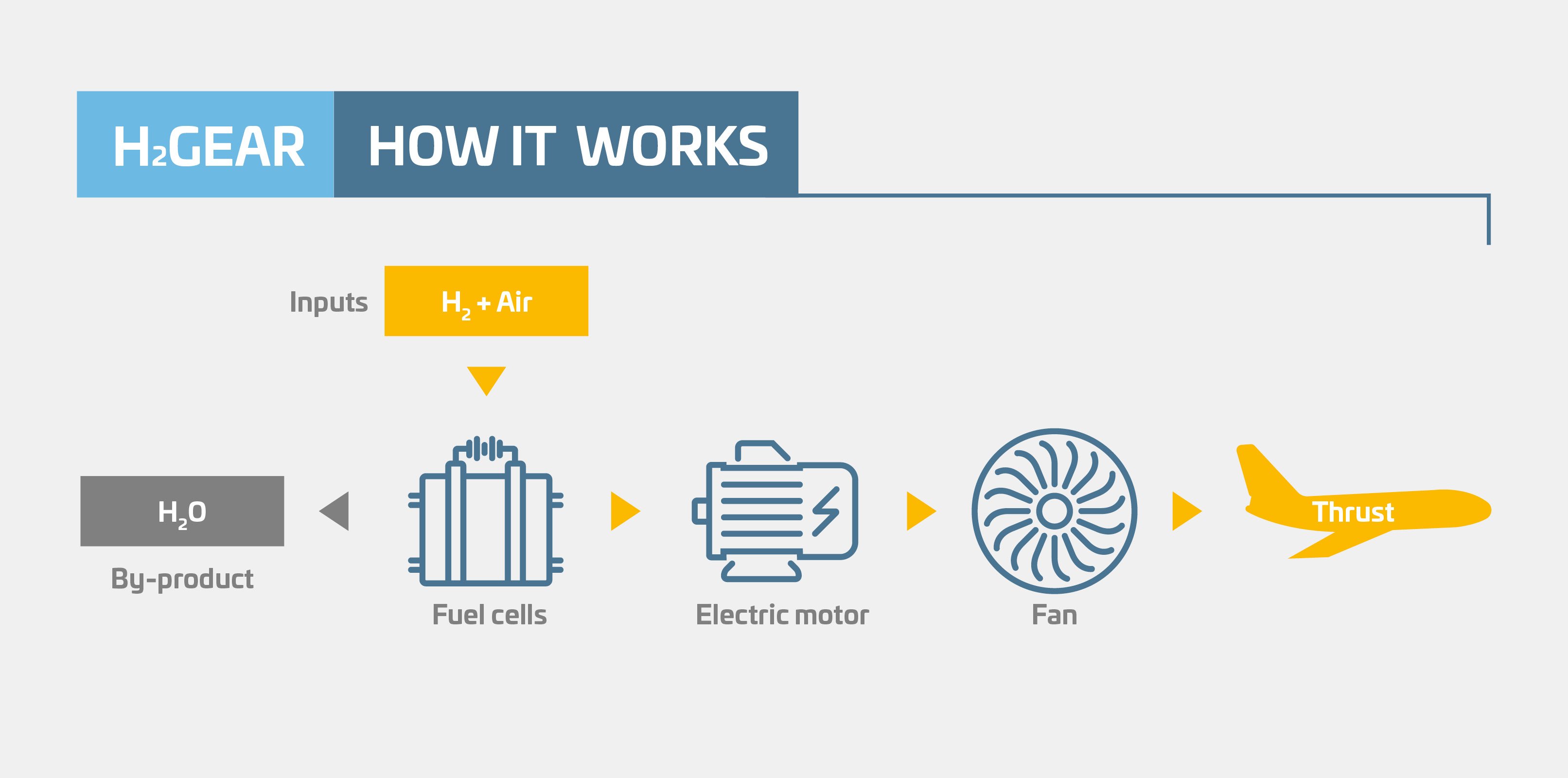Click Here to View This Page on Production Frontend
Click Here to Export Node Content
Click Here to View Printer-Friendly Version (Raw Backend)
Note: front-end display has links to styled print versions.
Content Node ID: 418863
GKN Aerospace is to lead a collaboration between industry and academia to develop a new hydrogen propulsion system for small “sub-regional” aircraft. Initially, the H2GEAR system will power new and existing aircraft seating up to 19 passengers, but the aerospace group says it could subsequently be scaled up for use on larger airliners.
The UK-based project is backed by an evenly-shared £54 million ($73 million) joint investment by GKN, along with its partners and the government’s Department for Business, Energy and Industrial Strategy (BEIS). Program partners include fuel cell specialist Intelligent Energy, electric motors and control systems group Aeristech, Newcastle University, the University of Manchester, and the University of Birmingham.
The H2GEAR system will convert liquid hydrogen to electricity in fuel cells. This will power electric motors that will drive either ducted fans or propellers.
According to GKN, the first hydrogen-powered aircraft could be ready to enter service in 2026. The company says it has had contact with several unnamed existing aircraft manufacturers, as well as startups and also airlines.
The program will be based at GKN Aerospace’s new £32 million Global Technology Centre at Bristol in southwest England. The partners say it could create more than 3,000 new jobs over the next decade.
“Hydrogen-powered aircraft offer a clear route to keep the world connected, with dramatically cleaner skies,” said GKN Aerospace chief technology officer Russ Dunn.
GKN Aerospace is a major tier one supplier, providing sub-systems and components for a wide variety of aircraft and aero engine manufacturers. The group specializes in lightweight composite aerostructures, additive manufacturing, engine systems, and smart transparencies (such as aircraft windows).
The BEIS’s £27 million funding for H2GEAR was announced today by business minister Paul Scully. The UK government is also giving a £2.8 million grant to Inception (part of Blue Bear Systems Research) to develop an all-electric propulsion system for smaller eVTOL aircraft.
In December 2020, BEIS awarded a £12.3 million grant through the Aerospace Technology Institute to California-based hydrogen ZeroAvia, which is working on a hydrogen fuel cell powertrain for aircraft with up to 19 seats. The HyFlyer II program, which is based at the UK’s Cranfield aerospace research hub, also involves Aeristech and the European Marine Energy Centre in Scotland.
